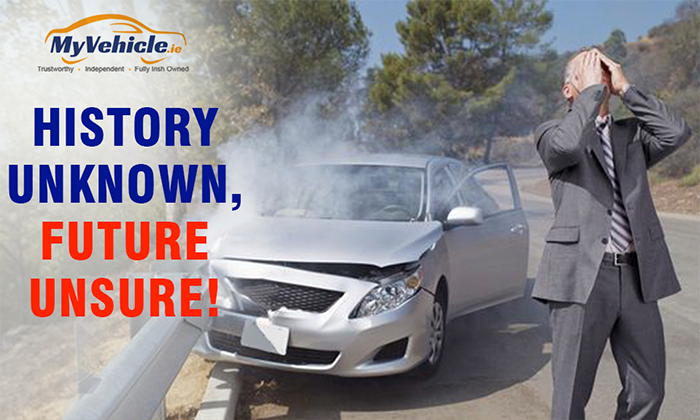What are the most common problems with used cars in Ireland?

Owning your own car can be a comfortable and convenient way to travel, and for most people, a necessity. However, a typical family car can also be expensive to run and maintain. This is especially true when you purchase a used car with any significant mileage on the clock, as there are a number of problems that you may encounter with increasing age and use. A Car History Check is a simple and inexpensive way to uncover a used cars hidden history and confirm that the mileage is genuine at the time of purchase. Here are just some of the most common problems you may encounter when running a car, and some tips on how to prevent these problems and keep your car in great condition for many miles to come.
Failures of the Engine and Ancillary Parts
One of the most common problems with used cars is component failure in the engine itself. Problems such as overheating, oil leaks, or a failure to start, particularly where the mileage is getting high or the car has been poorly maintained, are commonplace. To reduce the risk of such issues, its important to have your car serviced regularly according to the manufacturers service intervals. Servicing usually includes oil changes, and other basic maintenance tasks like checking the coolant level, changing the oil, and changing the air and oil filters. Apart from regular maintenance, it is important to avoid over-stressing the engine by adopting a smooth driving style, avoiding excessive speed and heavy braking and where possible, avoiding carrying heavy loads.
Electrical & Battery Problems
The most common electrical problems are simple ones such as bulb failures and battery degradation. More serious issues can include failure of the alternator or starter motor. It is important to have your car’s electrical system checked regularly including a test of the lights and battery. This is particularly important in winter when cold starting and night driving is increased. If your car is not in regular, daily use, it is a good idea to connect a maintenance charger to the battery when the car is not in use, to keep the battery fully charged.
General Wear of Wheels, Tyres & Brakes
Leaving reliability aside, wheel rims, brakes and tyres are critical to the safe use of the car. It is most important to have your brakes and tyres checked regularly. This should be done by a professional mechanic; however, a regular visual check of the tyres and brake pads is easily carried out by the user in between professional inspections. When driving, you should avoid heavy braking and driving at excessive speeds, as this can put additional strain on brake components and tyres, and result in premature wear and increased maintenance costs.
Shock Absorbers and Suspension Components
Suspension problems are another common issue with used cars in Ireland where some road surfaces may be less than ideal. This can include worn shock absorbers, broken springs, and worn bushings and ball joints, resulting in poor handling or a loss of steering control. To minimise these problems, it is important to have your car’s suspension checked and repaired regularly and maintained in accordance with the service schedule. This can be done by a professional mechanic or a local tyre depot. Additionally, you should avoid driving on poor road surfaces and carrying heavy loads, all of which can place extra strain on your suspension.
Rust and Corrosion of Bodywork
Finally, rust and corrosion are common problems with used cars, particularly in Ireland, where cars spend most of their time operating in wet weather. Thankfully, this is less of a problem with modern cars but rust can still form on the under body, caused by exposure to water, de-icing salt, and other corrosive materials used on the roads. To prevent rust and corrosion, it’s important to wash and wax your car regularly, paying particular attention to power hosing the wheel arches and under body to remove heavy mud and grit. This is especially important during the winter months when salt is used to melt ice on the roads. Ideally, you should avoid parking your car near the coast or in areas with high levels of pollution, as this can increase the rate of deterioration of the paint and bodywork.
To help keep your car in optimum condition, there are a number of simple steps you can take. Firstly, it is important to have your car serviced regularly including things like oil changes, air and oil filter changes, and brake checks. Additionally, you should check the condition of your tyres regularly and replace them immediately if they appear worn or damaged. This can help to prevent problems developing with your suspension and steering, as well as improve your car’s fuel economy and handling and overall safety.
Finally, when buying a used car it is most important to buy a vehicle in the best condition available. Avoid making a poor investment by purchasing a Car History Check and having the car thoroughly tested and inspected by a professional mechanic or vehicle engineer. With careful use and regular maintenance, your car will provide many miles of safe and reliable motoring.
Author

Justin Kavanagh
Justin Kavanagh is a recognised leader
in automotive intelligence and vehicle
data supply to the entire motor industry.
He has almost 20 years experience in
building systems from the ground up.
As the Managing Director of Vehicle
Management System, he understands the
need and importance of trustworthy and
reliable vehicle history and advice to
both the trade and the public.
Follow me on LinkedIn